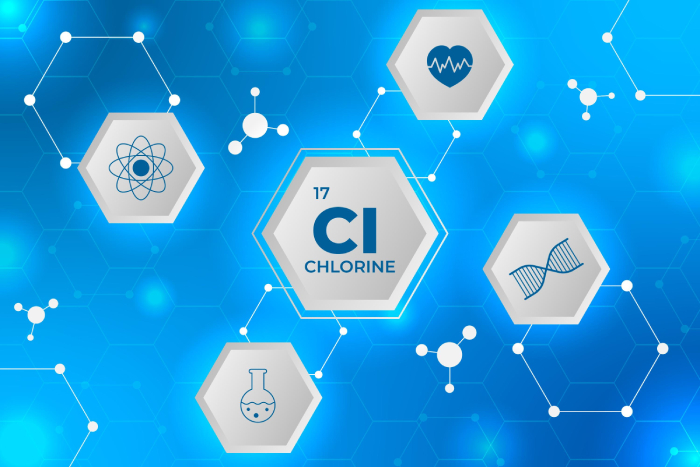Ever wondered about that powerful compound hiding in your daily soy latte? Meet genistein, nature’s remarkable isoflavone that’s been capturing the attention of health enthusiasts and researchers alike. As someone who’s spent years researching and writing about nutritional compounds, I find genistein particularly fascinating, and today, I’m excited to share everything you need to know about this incredible nutrient. This comprehensive guide will explore the science behind genistein, its potential health benefits, and practical ways to incorporate it into your wellness routine. Whether you’re a health professional seeking detailed information or someone simply interested in optimizing their nutrition, this article will provide valuable insights into one of nature’s most intriguing compounds.

The Essence of Genistein: What Makes It Special?
Genistein belongs to the isoflavone family, a group of plant-based compounds that have been making waves in the health and wellness community. While you might not have heard of genistein before, you’ve probably been consuming it if you’re a fan of soybeans or other legumes. What’s particularly interesting about genistein is its structural similarity to estrogen, which gives it some unique properties that we’ll explore in detail. This molecular mimicry allows genistein to interact with estrogen receptors in the body, potentially influencing various physiological processes. The compound’s ability to act as a selective estrogen receptor modulator (SERM) has garnered significant scientific interest, especially in the context of hormone-dependent health conditions. Understanding genistein’s fundamental nature helps explain its diverse range of potential health benefits and its growing popularity in both traditional and modern wellness practices.
Primary Sources: Where Can You Find Genistein?
Before diving into supplements, let’s explore the natural food sources rich in genistein. This information is crucial for those who prefer obtaining nutrients through dietary sources rather than supplementation. Soybeans and soy products lead the pack, containing approximately 5.5-7.4 mg of genistein per 100g, making them the most concentrated natural source of this beneficial compound. The genistein content in soybeans can vary depending on factors such as growing conditions, processing methods, and the specific soy product type. Pea protein has emerged as another significant source, making it a fantastic option for those avoiding soy due to allergies or personal preferences. The presence of genistein in pea protein has contributed to its rising popularity as a plant-based protein source. Chickpeas and other legumes contain moderate amounts of genistein, offering alternatives for those looking to diversify their isoflavone intake. Fava beans present another excellent option, providing not only genistein but also a range of other beneficial compounds. Red clover, though less common in typical diets, stands out as another notable source, particularly in supplement form.
The Science Behind Genistein Benefits
Research has shown that genistein offers numerous potential health benefits, backed by both laboratory studies and clinical trials. The compound’s unique molecular structure and its ability to interact with various cellular pathways contribute to its diverse therapeutic potential. While some benefits are well-established through decades of research, others are still being investigated, showing promising preliminary results. Understanding these benefits helps explain why genistein has become increasingly popular in both traditional medicine and modern nutritional science. Let’s explore the most significant research-backed benefits that make genistein a compound worth considering for your health regimen.
Cellular Health Support
Laboratory studies suggest that genistein may help maintain healthy cell growth and development through multiple sophisticated mechanisms. At the molecular level, genistein has been shown to influence various cellular signaling pathways that regulate cell cycle progression and cellular health. Research indicates that genistein can support the body’s natural defense mechanisms against abnormal cell growth, potentially through its antioxidant properties and ability to modulate specific cellular proteins. The compound’s interaction with cell membrane receptors and various enzymatic systems demonstrates its potential role in maintaining cellular homeostasis. These findings have sparked particular interest in the research community, leading to numerous ongoing studies investigating genistein’s potential applications in preventive health strategies.
Bone Health Enhancement
As we age, maintaining strong bones becomes increasingly important, and genistein shows particular promise in this area. Studies indicate that genistein may support bone density, particularly in postmenopausal women, through multiple mechanisms. One landmark study found that women taking genistein supplements showed improved bone mineral density compared to those taking a placebo, with the benefits becoming more pronounced over time. The compound appears to work by supporting the activity of bone-forming cells (osteoblasts) while helping to regulate the activity of cells that break down bone tissue (osteoclasts). This dual action makes genistein particularly interesting for those concerned about age-related bone density changes. Additionally, genistein’s ability to work synergistically with calcium and vitamin D further enhances its potential role in comprehensive bone health strategies.
Cardiovascular Support
Regular consumption of genistein-rich foods has been consistently associated with better heart health markers in both epidemiological studies and clinical trials. The compound appears to support healthy cholesterol levels and maintain proper blood vessel function through multiple mechanisms. Research suggests that genistein may help maintain healthy blood pressure levels by supporting proper endothelial function, the vital inner lining of blood vessels. The compound’s antioxidant properties also play a role in protecting cardiovascular tissues from oxidative stress, a key factor in maintaining heart health. Long-term observational studies in populations consuming high amounts of genistein-rich foods have shown correlations with better cardiovascular outcomes, though more research is needed to fully understand the exact mechanisms at play.
The Genistein Supplement Scene
With growing interest in genistein’s health benefits, the supplement market has responded with various formulations and delivery methods. Understanding the supplement landscape is crucial for making informed decisions about genistein supplementation. The market offers various forms of genistein supplements, from isolated compounds to complex formulations that include other beneficial isoflavones. When evaluating supplements, it’s important to consider factors such as bioavailability, purity, and manufacturing standards. The growing body of research supporting genistein’s benefits has led to increased demand for high-quality supplements, but navigating this market requires careful consideration of several key factors.
When choosing a genistein supplement, consider these crucial aspects:
Dosage considerations have evolved based on clinical research, with typical recommendations ranging from 25-100mg daily. This range allows for personalization based on individual needs and health goals. Source quality is paramount, with standardized extracts offering more consistent potency and better reliability. Third-party testing certification provides additional assurance of product quality and safety, while manufacturing standards can significantly impact the supplement’s effectiveness and safety profile. Look for products manufactured in facilities that follow Good Manufacturing Practices (GMP) and have a proven track record of quality control.
Safety Considerations: What You Need to Know
The safety profile of genistein has been extensively studied, and while it’s generally considered safe for most people, understanding potential interactions and contraindications is crucial for responsible usage. Research spanning several decades has provided valuable insights into both the benefits and potential risks associated with genistein consumption, whether through dietary sources or supplementation. The compound’s interaction with hormonal systems necessitates particular attention to individual health conditions and circumstances. This comprehensive understanding of genistein’s safety profile helps inform appropriate usage guidelines and highlights situations where additional precautions may be necessary.
Hormone Sensitivity and Interactions
The question “Does genistein increase estrogen?” frequently arises in discussions about this compound, but the answer requires a nuanced understanding of how genistein interacts with hormonal systems. While genistein can interact with estrogen receptors, its effects are more sophisticated than simply increasing estrogen levels. As a selective estrogen receptor modulator (SERM), genistein demonstrates tissue-specific effects, potentially acting differently in various parts of the body. This selective action explains why genistein might support bone health without necessarily causing unwanted effects in other hormone-sensitive tissues. Understanding this mechanism is crucial for both healthcare providers and consumers in making informed decisions about genistein supplementation.
Male-Specific Considerations
The question “Can men take genistein?” deserves special attention given the compound’s interaction with hormonal systems. Research suggests that moderate genistein consumption is safe for men, with studies showing no adverse effects on male hormonal health when consumed in typical dietary amounts. However, those with hormone-sensitive conditions should consult healthcare providers before starting supplementation. Long-term studies have shown that populations consuming high levels of genistein through traditional diets show no negative impacts on male health parameters. Nevertheless, individual responses can vary, and monitoring for any changes in health status during supplementation is recommended.
Common Side Effects and Monitoring
While genistein is generally well-tolerated, understanding potential side effects helps users make informed decisions and monitor their response appropriately. Some individuals might experience mild digestive discomfort, particularly when beginning supplementation or consuming large amounts of genistein-rich foods. Headaches have been reported in rare cases, though these typically resolve with dosage adjustment or discontinuation. Changes in menstrual cycle patterns have been observed in some women, highlighting the importance of monitoring hormonal responses. These effects are usually mild and temporary, but awareness helps users better manage their genistein consumption and adjust as needed.

Maximizing Benefits: How to Use Genistein Effectively
The effectiveness of genistein supplementation or dietary intake can be significantly enhanced through proper timing and strategic combinations with other nutrients. Understanding these optimization strategies helps users maximize the potential benefits while minimizing any risk of adverse effects. This section explores evidence-based approaches to genistein consumption, whether through dietary sources or supplementation, and provides practical guidelines for various user groups.
Timing Considerations for Optimal Absorption
The timing of genistein consumption can significantly impact its absorption and effectiveness. Taking genistein supplements with meals enhances absorption due to the presence of dietary fats and other nutrients that support optimal uptake. This approach also helps minimize any potential digestive discomfort. Spacing out doses throughout the day helps maintain more consistent blood levels of the compound, potentially optimizing its beneficial effects. Research suggests that morning consumption might be particularly beneficial for some users, though individual responses can vary.
Food Combinations and Synergistic Effects
The effectiveness of genistein can be enhanced through strategic food combinations and understanding nutrient synergies. Pairing genistein-rich foods with vitamin C sources has been shown to improve absorption and bioavailability. The inclusion of healthy fats during genistein consumption supports optimal uptake, as many of the beneficial compounds are fat-soluble. Evidence suggests that combining genistein-rich foods with other antioxidant-rich ingredients may enhance their overall health benefits through complementary mechanisms.
Population-Specific Considerations and Future Research
Different population groups may experience varying benefits from genistein consumption, and ongoing research continues to uncover new potential applications. Postmenopausal women may particularly benefit from genistein’s bone-supporting properties, while active adults might find value in its anti-inflammatory effects. Current research is exploring promising areas including cognitive function support, skin health applications, and metabolic health effects, with preliminary results showing potential across various health parameters.
Conclusion
The scientific understanding of genistein continues to evolve, revealing its potential as a valuable component of a comprehensive health strategy. Whether obtained through dietary sources or supplementation, genistein offers promising benefits when used appropriately and with proper consideration of individual health circumstances. As with any health-related decision, consulting with healthcare providers remains essential, particularly for those with underlying health conditions or taking medications.
To maximize the benefits while ensuring safety, consider these final recommendations:
Begin with whole food sources of genistein before considering supplementation
Monitor your body’s response to genistein intake
Maintain consistent communication with healthcare providers
Keep detailed records of any changes in health parameters
Stay informed about emerging research in this field
Through careful consideration of these factors and appropriate implementation, genistein can be a valuable addition to a well-rounded approach to health and wellness.
The field of genistein research continues to expand, promising even greater insights into this remarkable compound’s potential benefits for human health. As our understanding grows, so too does the potential for more targeted and effective applications of this versatile nutrient.



